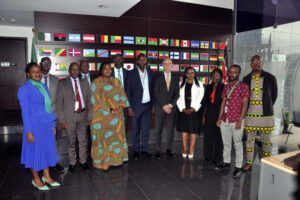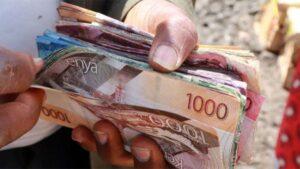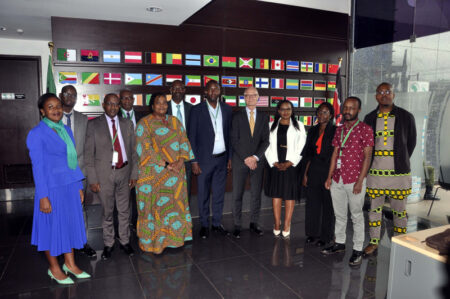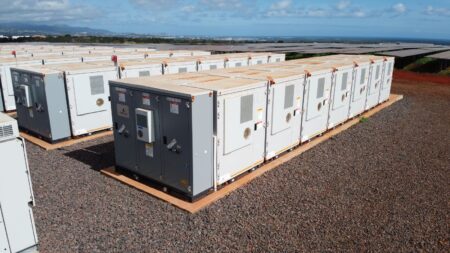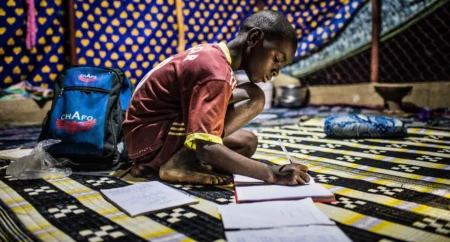- Indonesia has agreed to support Tanzania in developing its agriculture industry through funding and training at the Farmers Agriculture and Rural Training Centre in Morogoro.
- Additionally, Indonesia, which also has a thriving pharmaceutical industry, will invest in Tanzania through its pharmaceutical companies.
- As part of this expanding collaboration, the Diplomatic Schools of Tanzania and Indonesia have agreed to exchange students and professors.
A mutually beneficial trade and investment partnership is blossoming between Tanzania and Indonesia. At the centre of this strengthening alliance, the two nations are building bridges and targeting investments in key sectors such as agriculture, minerals, marine resources, the economy, education, diplomatic relations, technology, and trade.
Last week, President Samia Suluhu Hassan made a state visit to the Oceania nation, a move aimed at enhancing bilateral relations and forging new economic partnerships between Tanzania and Indonesia.
President Suluhu’s visit, which took place from January 24 to 26, forged a pathway for the East African country to breathe life into the economy through fresh agreements within the agriculture and trade sectors—a move poised to positively impact millions of Tanzanians.
Tanzania and Indonesia strike a deal on agriculture investments
Indonesia has agreed to support Tanzania in developing its agriculture industry through funding and training at the Farmers Agriculture and Rural Training Centre in Morogoro.
Indonesia, which also boasts a thriving pharmaceutical industry accounting for nearly 50 per cent of revenue growth, will be investing in Tanzania through its pharmaceutical companies, effectively enhancing the nation’s health services.
Furthermore, as per communication from Suluhu’s State House, at least 100 employees of the Tanzania Petroleum Development Corporation (TPDC) are set to benefit from an Indonesian scholarship program coordinated by Jakarta’s oil and gas giant Pertamina.
Pertamina aims to increase its shares in the Mnazi Bay field in Mtwara, as outlined in agreements signed between Tanzania and Indonesia during President Samia’s two-day visit to the Southeast Asian country.
President Widodo stated that Indonesia is poised to increase investments in Tanzania, including the management of the Mnazi Bay gas block and the processing of natural gas into chemical products and fertilizers.
According to data from the Ministry of Trade, Tanzania’s exports to Indonesia totalled $26 million in 2022, while imports were $94 million.
Read also: Indesso makes Tanzania largest clove oil producer in Africa
Indonesian investments in Tanzania
The one-day business and investment forum drew participants from the Tanzania Chamber of Commerce, Industries, and Agriculture, the Zanzibar National Chamber of Commerce, the Tanzania Trade Development Authority, and the Indonesian Chamber of Commerce and Industry.
During the forum, Suluhu expressed her government’s commitment to ensuring that the value of Indonesian investments in Tanzania grows to over $1 billion in the coming years.
“We are ready to take advantage of Indonesia’s experience in the renewable energy sector to advance the development of this extensive and very profitable sector,” she said.
Minister for Foreign Affairs and East Africa Cooperation, January Makamba, hailed President Samia’s state visit as historic, noting that the last time a Tanzanian and an Indonesian leader made a similar visit was in 1987, and before that, in 1971.
The latest bilateral agreements will be implemented by state-owned energy corporations, including Tanzania’s State Mining Corporation and Indonesia’s PT Mineral Industries for the development of mining.
Tanzania Petroleum Development Cooperation and PT Pertamina of Indonesia will collaborate in the development of oil and natural gas.
Tanzania and Indonesia deal on energy development
Furthermore, Tanzania Electric Supply Company and Indonesia’s Persero have agreed to cooperate in the development of the power sector.
President Widodo stated that Indonesia will increase investments in Tanzania, including the management of the Mnazi Bay gas block by its state-owned company and the processing of natural gas into chemical products and fertilizers.
“Indonesia is one of the world’s largest economies, currently ranked at 17th position. Indonesia is among the largest market for Tanzanian products, and tomorrow (today) we will seal seven agreements of cooperation,” said Minister Makamba.
Indonesia, a country of 279.5 million people, stands as Southeast Asia’s largest economy with a GDP of approximately $1.32 trillion in 2022. It is projected to become the sixth-largest economy in the world by 2027.
According to Mr. Makamba, Tanzania has been selling various agricultural and industrial products in Indonesia, including cotton, tobacco, groundnuts, tea, palm oil, soap, furniture, garments, and instant noodles.
Highlighting the historical collaborative efforts between Tanzania and Indonesia, Makamba emphasized the importance of the Non-Aligned Movement (NAM) and international diplomacy in fostering strong relations.
He acknowledged Jakarta’s diplomatic success over the past two decades and proposed further collaboration between Tanzania and Indonesia’s diplomatic schools.
Read also: Indonesian tycoon pumps $120M in Mozambique’s gas plant
Diplomatic Schools of Tanzania and Indonesia joint deal
“Tanzania has a diplomatic school that operates in different regions. If we work together with Indonesia to exchange techniques, knowledge, and ideas in a new strategy for diplomacy, both nations will benefit,” asserted Makamba.
As part of the growing collaboration, the Diplomatic Schools of Tanzania and Indonesia have agreed to exchange students, professors, research groups, and techniques to align their interests in strategic diplomatic forums.
Makamba also announced that negotiations on a Preferential Trade Arrangement (PTA) and a Bilateral Investment Treaty (BIT) are in the pipeline.
These agreements are crucial tools to instil confidence in investors and facilitate increased economic collaboration between the two nations.
Other agreements under consideration between Tanzania and Indonesia include visa exemptions, health cooperation, and partnerships in energy, mining, electricity, and oil.
The Tanzania-Indonesia Business Forum is expected to be a crucial venue for identifying new prospects and strengthening current collaborations.
Targeting tourism and business development cooperation with Indonesia, Tanzania opened its Embassy in Jakarta last year to coordinate and enhance cooperation between the two countries.
Tourism is among the key areas of cooperation between Tanzania and Indonesia. Cruise ship tourism and beach holidays are the leading tourist activities set to benefit from the cooperation between the two states.
Both Tanzania and Indonesia are rich in marine resources, which could be shared through cruise shipping between the Indian and Pacific Oceans.
